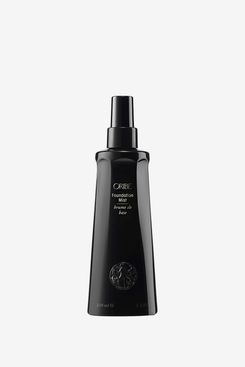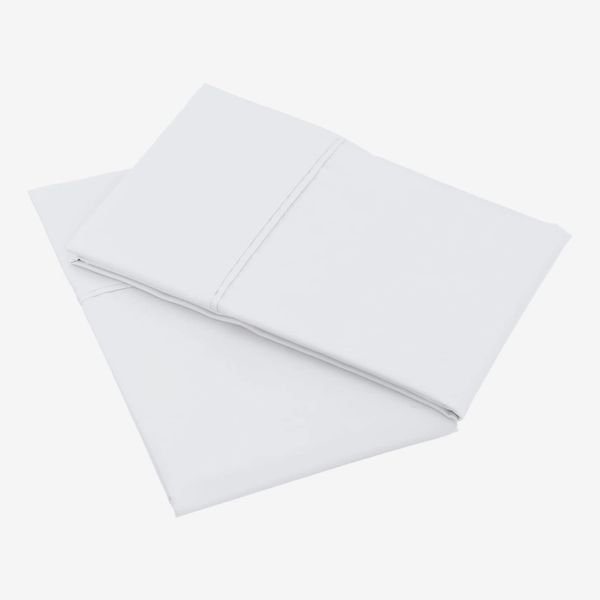
What’s best for your hair isn’t always what’s best for your skin. While a hydrating hair-care routine can tame frizz, define curls, and lock in moisture, it can also wreak havoc on your complexion. “Many of the comedogenic ingredients in hair products work great for hydrating the hair, but let’s face it — they can cause acne,” says board-certified dermatologist Hope Mitchell, especially along your hairline, neck, and back. “Even if you’ve never had acne, some hair products can cause breakouts. The bumps can be subtle, or bold whiteheads that can be spotted across the room.”
In order to prevent hair-care-induced acne, as well as other skin conditions like psoriasis, seborrheic dermatitis, or even dandruff, board-certified dermatologist Sapna Palep of Spring Street Dermatology recommends to first eliminate a (rather long) list of comedogenic ingredients from your routine. “I tell patients the most problematic ingredients are oils like coconut, argan, palm kernel, apricot kernel, wheat germ, olive, and moroccan. You also want to avoid a lot of heavy petrolatum, sodium lauryl sulfate, sodium laureth sulfate, sodium chloride, isopropyl myristate, fragrance. Too much glycerin is tough for the skin, too.”
Lastly, both dermatologists recommend wearing your hair pulled back while sleeping and working out. They also suggest changing your pillowcases regularly, to prevent product transfer. But if you’re looking for some products that won’t break you out in the first place, we asked three dermatologists for their favorites (and hunted down some other products that met their requirements, too), including fragrance-free conditioner, plant-based dry shampoo, and even oil-free curl cream — all of which are safe for skin.
Shampoos and Conditioners
Both Mitchell and Palep recommend SEEN hair care, a dermatologist-formulated line that the brand says is “clinically proven to be noncomedogenic and nonirritating.” The line is free from “sulfates, phthalates, silicones, dyes, or pore-clogging oils,” says Mitchell, and all of its products are available in both lightly fragranced or fragrance-free options. “SEEN is a really good [brand] that comes up over and over again,” agrees Palep. The shampoo and conditioner are formulated for all hair and skin types, too, including color-treated hair.
“If you’re someone whose skin is sensitive to everything, that’s your go-to,” says Palep of the Free & Clear shampoo and conditioner. “They’re probably the most recommended by dermatologists.” Both the shampoo and conditioner are free from dyes, fragrance, parabens, sulfates, oils, and gluten, meaning they won’t “clog you or break you out,” Palep says.
If the acne around your hairline is caused by an oily scalp (and oily hair), board-certified cosmetic dermatologist Shereene Idriss recommends Head & Shoulders Instant Oil Control, which “not only helps control oil production but also contains pyrithione zinc that has antimicrobial and antifungal properties that help control both folliculitis and dandruff.” And while it does contain sodium laureth sulfate, “because of the pyrithione zinc, it’s pretty noncomedogenic,” says Palep.
If your acne is concentrated primarily on your scalp, salicylic acid “helps control scalp build up and minimize oil production,” explains Idriss. She likes Neutrogena’s T/Sal, which is a salicylic-acid-based shampoo that’s dye-, fragrance-, and oil-free, and is used to treat a variety of scalp conditions, including psoriasis, dandruff, and folliculitis. NYC-based dermatologist Howard Sobel told us that it can be drying, at least when used to treat dandruff, so it’s best to “cut down [use] to every other day or even once per week once symptoms subside,” he advises.
One of the few skin-safe oil-based ingredients is tea-tree oil, which is naturally antimicrobial and antibacterial. “Tea-tree shampoos are pretty noncomedogenic,” says Palep. “As long as they don’t contain any other oils, your scalp will feel pretty clear.” OGX’s tea-tree shampoo and conditioner do not contain any comedogenic oils, and are both dye-, paraben-, and sulfate-free.
Styling Products
Though there are a fair number of dermatologist-approved shampoos and conditioners, it’s much more difficult to find hairstyling products that are free of pore-clogging ingredients. “It’s almost impossible to find a product that has nothing [comedogenic] in it, but there are ones that are better than others,” says Palep. “I would advise looking at the ingredients on the back, and trying to avoid, as much as possible, the ingredients that we know are bad.” Following our dermatologists’ guidelines, this styling gel from Vanicream’s Free & Clear line seems to meet the mark. It’s free of oils, alcohol, dyes, fragrance, and parabens, and it doesn’t contain any comedogenic ingredients.
Another Free & Clear option, this nonaerosol hairspray contains just seven ingredients, all of which are noncomedogenic. Like the gel above, this one’s free of oils, dyes, fragrance, and parabens. (And for the environmentally conscious, it also made our list of best ecofriendly hair sprays.)
SEEN’s hair-care line includes styling products, like this styling crème designed for wavy and curly hair. It comes in both fragranced and fragrance-free options, but is, most importantly, formulated without any pore-clogging oils, sulfates, silicones, phthalates, parabens, or dyes. It also protects hair from pollution and UV damage, and for those who heat style, provides heat protection up to 450 degrees Fahrenheit.
If body, bounce, and shine are your main hair goals, SEEN’s Blow-Out Creme claims to reduce frizz and keep hair smooth. Like the Curly Creme, it’s free from sulfates, silicones, phthalates, parabens, dyes, and pore-clogging oils, and protects hair from heat (up to 450 degrees Fahrenheit), pollution, and UV damage.
Tracy Dubb, co-founder of multipurpose skin-care brand Isla, told us that she swears by this detangling Oribe mist, which hasn’t broken out her acne-prone skin. “For a really long time, I avoided putting anything in my hair because I didn’t want to break out,” says Dubb, “but I have recently found that the Oribe Foundation Mist is light-feeling on the hair and hasn’t caused a single breakout in the year or so that I’ve used it religiously.” We double-checked the ingredients list, and the mist — whose main ingredients are green-tea extract, vitamin B5, and wheat protein — doesn’t contain any of the main pore-clogging contenders that our dermatologists told us to worry about.
And finally, this dry shampoo contains only six noncomedogenic, plant-derived ingredients, including rice starch, tapioca starch, and rice powder, meaning it shouldn’t clog pores like oil-infused dry shampoos might.
Accessories
To prevent products from transferring to your skin while sleeping, Palep advises to “always have your hair tied up and off of your face at nighttime with a loose clip.” She also pulls her hair up after conditioning while showering, to prevent any pore-clogging ingredients from touching her face or back. These crown clips have a nonslip coating, so they’ll keep your hair secure even while tossing and turning.
If sleeping with a hair clip doesn’t sound particularly comfortable, these silk scrunchies (from the maker of our favorite silk pillowcase) will keep hair pulled back without causing dents or breakage.
And if you’re really looking to keep your hair off your face (and your pillowcase), Strategist writer Tembe Denton-Hurst says that these satin-lined caps are superior to scarves or headbands for sleeping, mostly because they stay on all through the night. They’re “soft (thanks to the satin lining) and snug without being tight (its elastic band apparently fits comfortably over twas, fros, dreadlocks, sister locs, and more),” she writes. They’re nice-looking enough to wear while running errands, too.
“Changing your pillowcases — like sleeping on one side, flipping it over the next, and then every two nights changing them out — helps a lot,” says Palep. If you could use a few more pillowcases to add to your rotation, dermatologists we’ve spoken to in the past recommend silk or cotton for sensitive skin, such as these top-rated 100 percent cotton ones.
The Strategist is designed to surface the most useful, expert recommendations for things to buy across the vast e-commerce landscape. Some of our latest conquests include the best acne treatments, rolling luggage, pillows for side sleepers, natural anxiety remedies, and bath towels. We update links when possible, but note that deals can expire and all prices are subject to change.























